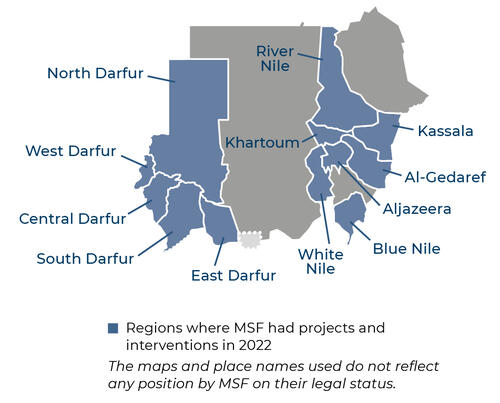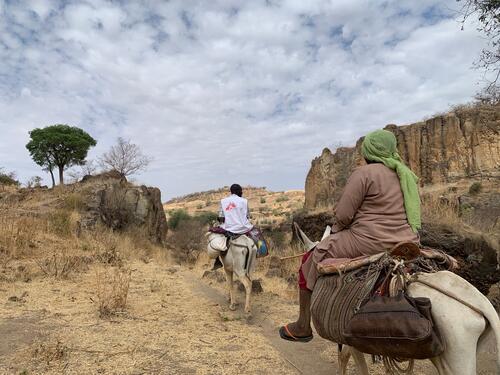At a project in Sortoni, we provide treatment via outpatient and inpatient consultations. The project also provides nutritional services and vaccinations. At Dar Zaghawa, four of our health centres offer medical care, with a particular focus on mothers and children.
We also treat visceral leishmaniasis (also known as kala azar) in Al-Gedaref State, eastern Sudan. This parasitic disease, which is transmitted by sandflies, has a 95 per cent mortality rate if it is not treated.
Our activities in 2022 in Sudan
Data and information from the International Activity Report 2022.
1,104
1,104
€49.3 M
49.3M
1979
1979


586,800
586,8
4,260
4,26
1,950
1,95

230
23

Chad refugees must choose to return or a permanent camp

Aerial bombings and attacks lead thousands of civilians to flee to Chad

MSF activities still remain high in southern Sudan

Oppressive uncertainty for displaced people in South Darfur

In Memoriam: JAMES AGUT

Patients and family members killed inside MSF compound

Fighting forces MSF team to evacuate from Muhajariya

Darfur, interview with MSF's International President Dr. Christophe Fournier





